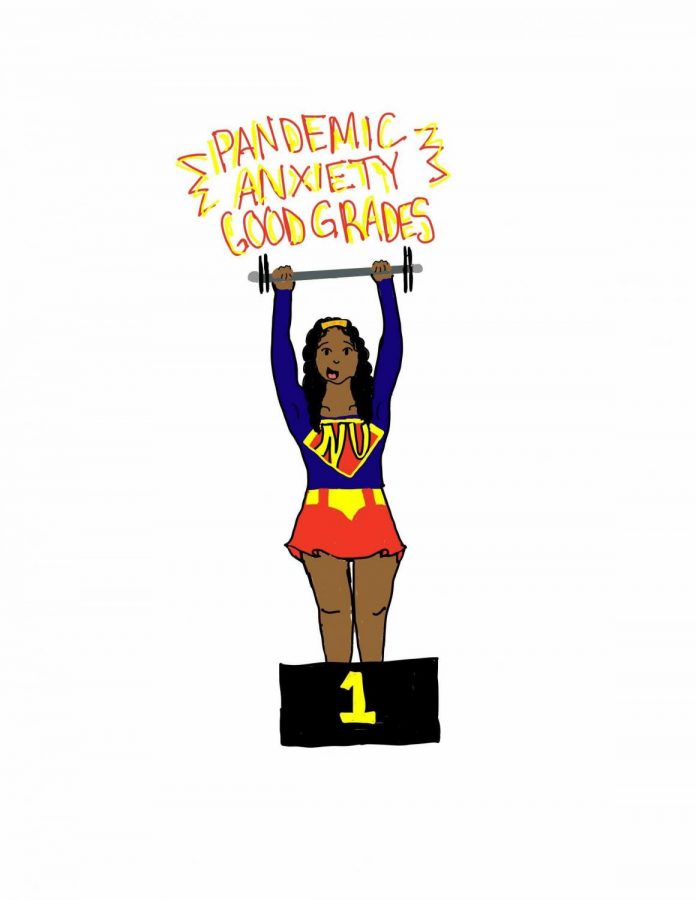Op-ed: Northeastern shouldn’t implement a universal pass/fail grading system
Some students are opposed to implementing a universal pass/fail system this semester.
December 8, 2020
This year has been exceptionally stressful and emotionally exhausting, so the extra pressure to excel in school may seem like the last thing the Northeastern community needs. In conjunction with this sentiment, Northeastern’s Student Government Association unanimously passed a resolution that calls for the adoption of a “universal opt-in pass/fail policy, encompassing all classes that a student is taking for the Fall 2020 semester with no impact on Northeastern scholarships or Dean’s List consideration.”
While a universal pass/fail grading system may appear to be the safety net we all need, it is in the students’ best interest to maintain a normal grading system for the 2020-2021 academic school year.
As a 2020 high school graduate, I can personally attest to the pros and cons of a virtual learning environment supplemented with a universal pass/fail grading system. To put it simply, motivation plummets. Feelings of hopelessness, defeat and nihilism clouded the final few months of my senior year. To pull myself out of such an academic slump, I needed to be held accountable again. A normal grading system would do just that.
The transition from high school to college under normal circumstances is difficult in its own right. It can be a struggle for many to manage schoolwork, a social life and living away from home for the first time. A universal pass/fail grading system would slow the steep learning curve that already comes with the college adjustment. After over a year of relaxed academic standards, returning to a normal grading policy would prove extra difficult — like working out after an extended period of rest and atrophy.
Northeastern University is a community filled with resilient, brilliant and hard-working students. Despite the pandemic, we need to keep this fire alive and hold our students to the high standards that we’re capable of. The circumstances may be tough, but so are we. And we should persevere.
I acknowledge that the pandemic ushered in unprecedented economic hardship and recognize that this may put extra pressure on students to academically succeed for the sake of maintaining scholarships. I personally wrestle with this. Close family members of mine have had to pick up extra shifts and even second jobs just to remain afloat. Thus, NU should address this reality by implementing other ways to remove extra economic pressure, yet keep a grading policy that still motivates students to do their best.
For instance, remote learning restricts access to certain resources. It may be increasingly difficult, especially for lower-income students, to secure a quiet study space or stable internet connection for live lectures. To mitigate this issue, NU should require professors to record their lectures so students can access course content at any time. Students may miss out on important information due to home environments not conducive to learning or poor internet connection that renders Zoom useless. Constant access to class lectures gives everyone an equal opportunity to succeed.
Additionally, access to NU scholarships should not be dependent on grades for the 2020-2021 academic school year. Furthermore, NU should make an effort to account for the potential disadvantages of remote learning while maintaining a traditional grading system. This is the perfect, middle-of-the-road solution that accounts for the adverse economic circumstances many students are facing while still pushing them to academically succeed.
Our university is all about experiential learning and preparing us for the real world. And while it might feel cruel, the real world doesn’t slow down despite a global pandemic. To prepare us for a world that never stops, we need to be strong and trudge through our academic careers as normally as possible.
Katie Mogg is a first-year journalism major. She can be reached at mogg.k@northeastern.edu.








